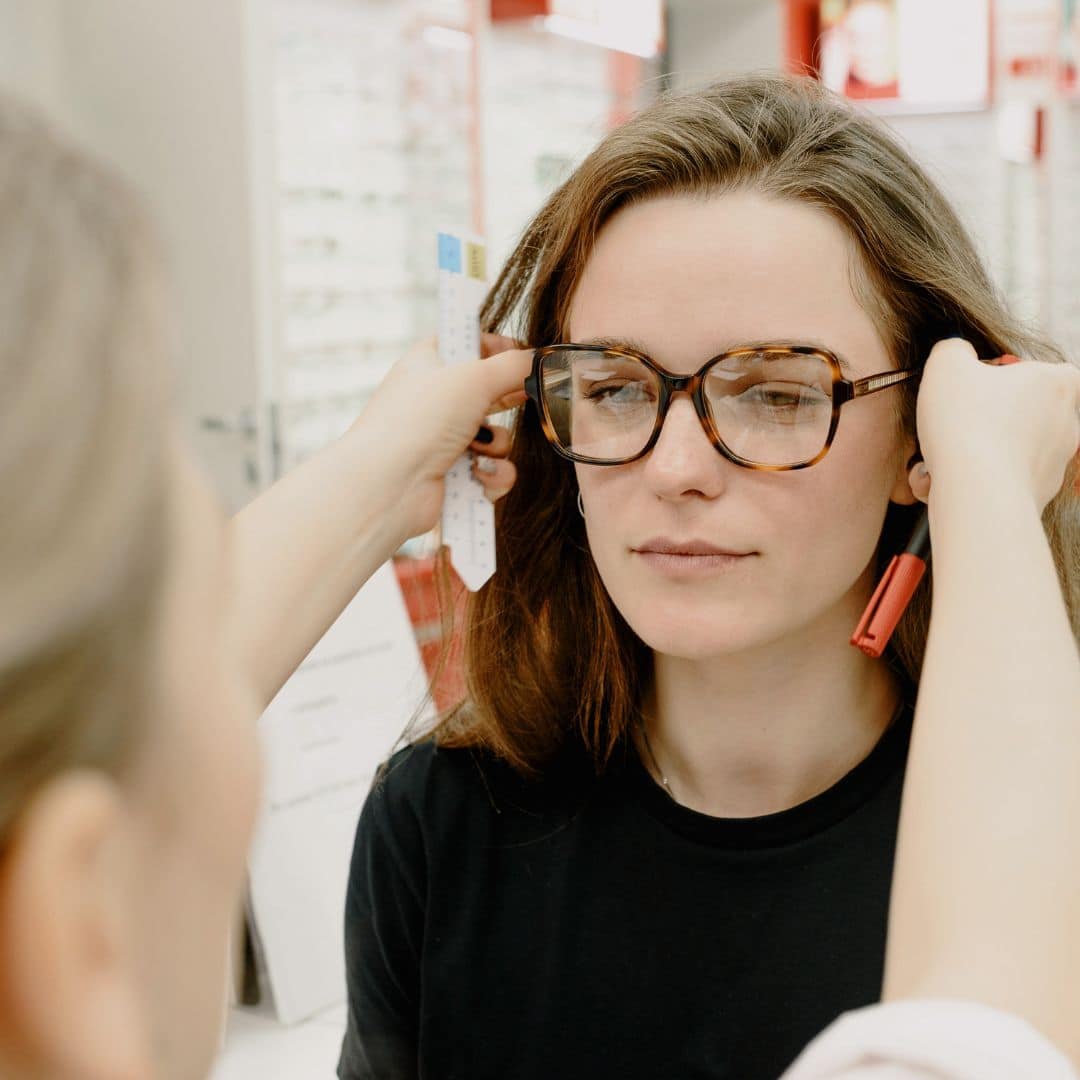Eyeglasses serve as indispensable aids for clear vision, but their efficacy is greatly dependent on a proper fit. This article explores the nuanced art of adjusting eyeglasses, delving into the importance of a snug fit and the various signs indicating a need for adjustment.
Understanding the Importance of a Proper Fit
A. Impact on Vision
A well-fitted pair of eyeglasses directly influences visual acuity. Precise alignment ensures that the corrective lenses function optimally, offering the wearer a crystal-clear view of their surroundings.
B. Avoiding Discomfort and Strain
Beyond vision, a comfortable fit is paramount to preventing discomfort and strain. Ill-fitting eyeglasses can lead to headaches, nose bridge pain, and overall visual fatigue.
Section 1: Signs Your Eyeglasses Need Adjustment
A. Slipping Down Your Nose
Constantly pushing your glasses up? This may indicate that the frames are too loose, compromising the secure positioning on your nose.
B. Uneven Pressure on Ears
If one side exerts more pressure than the other, it’s a clear sign that your eyeglasses are out of balance, potentially causing discomfort.
C. Red Marks or Indentations
Deep red marks or indentations on your nose or behind your ears suggest that the frames are exerting excessive pressure, necessitating adjustment.
D. Vision Distortion or Blurriness
Blurriness or distorted vision can result from misaligned lenses. It’s crucial to address these issues promptly to maintain optimal visual clarity.
Section 2: Tools You’ll Need for Adjustment
A. Microfiber Cloth
Begin with a clean microfiber cloth to gently wipe away any dirt or smudges on the lenses.
B. Screwdriver (if applicable)
For glasses with adjustable screws, a screwdriver is indispensable for precise adjustments.
C. Warm Water and Soap
A mild solution of warm water and soap aids in cleaning and ensures a hygienic adjustment process.
Section 3: Preparing Your Workspace
A. Well-lit Area
A well-lit environment is crucial for accurately assessing the fit and making precise adjustments.
B. Clean Surface
A clean, clutter-free surface provides a stable platform for eyeglass adjustments, preventing accidental scratches or damage.
Section 4: Adjusting Nose Pads
A. Ensuring Symmetry
Carefully align the nose pads to ensure symmetry, promoting equal weight distribution for enhanced comfort.
B. Testing for Comfort
After adjustments, wear the glasses for a few minutes to assess comfort. Minor tweaks may be necessary for optimal results.
Section 5: Temples and Arms Adjustment
A. Correcting Unevenness
Address any unevenness in the temples, ensuring both sides exert balanced pressure for a secure fit.
B. Avoiding Behind-the-Ear Discomfort
Check that the arms sit snugly behind your ears without causing discomfort, striking a delicate balance between stability and ease.
Section 6: Tightening or Loosening Screws
A. Identifying Loose Screws
Regularly inspect your eyeglasses for loose screws, tightening them as needed to prevent misalignment.
B. Properly Tightening without Damage
Exercise caution when tightening screws, ensuring a secure fit without over-tightening and risking damage to the frames.
Section 7: Frame Material Considerations
A. Adjusting Plastic Frames
Plastic frames may require careful heat adjustments to achieve the desired shape without compromising structural integrity.
B. Adjusting Metal Frames
Metal frames, on the other hand, can withstand more pressure during adjustments but should be handled with precision to avoid deformation.
C. Special Considerations for Rimless Frames
Rimless frames demand delicate adjustments to maintain their minimalist aesthetic, often necessitating professional expertise.
Section 8: Adjusting for Face Shape
A. Oval, Round, Square, Heart: Specific Tips
Different face shapes require tailored adjustments for optimal comfort and aesthetic appeal.
B. Achieving Balance and Proportion
Strive for balance and proportion in frame alignment, ensuring that the glasses complement the natural contours of your face.
Section 9: Dealing with Specialty Frames
A. Adjusting Progressive Lenses
Progressive lenses necessitate precise adjustments to align multiple prescriptions seamlessly, offering clear vision at all distances.
B. Tips for Bifocals and Trifocals
Bifocals and trifocals require meticulous adjustments to harmonize the varying focal points, preventing visual inconsistencies.
Read more about Progressive vs. Bifocal Lenses.
Section 10: Troubleshooting Common Issues
A. Dealing with Crooked Frames
For crooked frames, identify the misalignment and make incremental adjustments until symmetry is restored.
B. Addressing Slipping Frames During Sports or Activities
Opt for adjustable sports bands or grips to prevent glasses from slipping during dynamic activities, ensuring a secure fit.
Section 11: Daily Maintenance Tips
A. Cleaning Your Eyeglasses
Regularly clean your eyeglasses with a microfiber cloth and lens cleaner to maintain clarity and hygiene.
B. Regular Check-Ups for Optimal Comfort
Periodic checks and adjustments contribute to sustained comfort, addressing any changes in fit that may arise over time.
Section 12: Knowing When to Seek Professional Help
A. Recognizing Unsolvable Issues
Certain issues may require professional intervention, such as irreparable damage or complex adjustments beyond DIY capabilities.
B. Consulting Your Optometrist
When in doubt, consult your optometrist for expert advice and adjustments, ensuring your eyeglasses provide optimal comfort and vision correction.
Conclusion
Enjoy the Benefits of a Well-Fitted Pair, and make Adjustments a Regular Habit for Maximum Comfort

